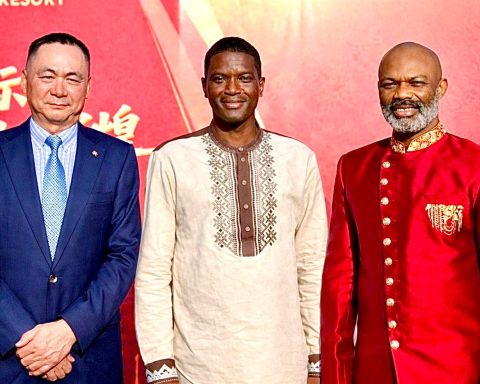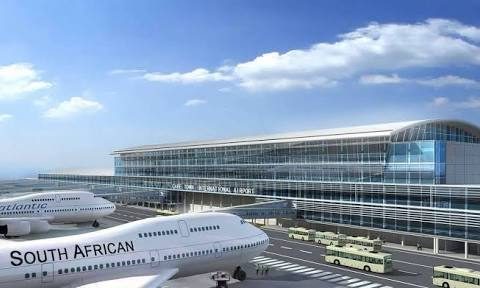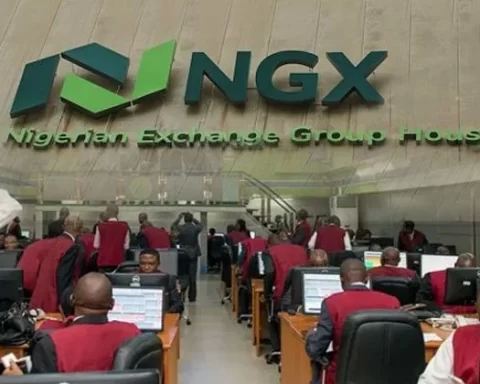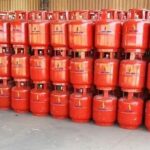The African Continental Free Trade Area (AfCFTA) is a game-changer for Africa’s economic development, and Nigeria is poised to play a pivotal role in its success. With its vibrant market, significant economic weight, and strategic location, Nigeria can leverage AfCFTA to unlock new opportunities for growth, industrialization, and job creation.
AfCFTA brings together all 55 African Union member states, creating a single continental market for goods and services covering over 1.3 billion people with a combined GDP of $3.4 trillion. This historic trade pact promises to dismantle colonial-era barriers, accelerate industrialization, boost intra-African trade, and raise living standards across the continent.
At a time when the United States and some European countries have raised tariffs by as much as 40 to 60 per cent, the AfCFTA stands out as an initiative owned by Africans and designed to deliver benefits primarily to Africans.
Yet, at the centre of this ambition is Nigeria, Africa’s 4th largest economy and most populous nation. With its vibrant market, significant economic weight, and strategic location, Nigeria is pivotal to gain and contribute to the success of the AfCFTA.
Last month, it became the first African country to complete its five-year implementation review under Section 28 of the AfCFTA Agreement, as announced by the Minister of Industry, Trade and Investment, Dr Jumoke Oduwole. The milestone signals that the trade union presents vast opportunities for the country, though its economic potentials under the AfCFTA faces serious constraints. Infrastructural deficits, particularly unreliable power supply, poor transport networks and congested ports, continue to stifle the growth of small and medium enterprises.
Nigeria’s Emerging Gains and Opportunities with AfCFTA
AfCFTA opens a vast frontier for Nigeria, granting access to a 1.4 billion market with a combined GDP of $3.4 trillion. It offers huge potential for growth in manufacturing, agriculture and services, sectors long underleveraged on the continent.
The trade area also unlocks new regional supply chains, boost agro-processed exports and expand digital and financial services. Nigerian fintechs and startups stand to scale into wider regional markets through AfCFTA’s digital framework. Micro, Small and Medium Enterprises (MSMEs) are central to this growth. At the July 2025 Johannesburg Conference, its stakeholders highlighted their role in job creation and innovation.
At the July 2025 Nigeria IATF Business Roadshow in Lagos, officials announced a 13 per cent rise in intra-African exports from the previous year, signalling opportunities for Nigerian small businesses across the country. Key growth sectors include ceramics, garments, pharmaceuticals and the creative industry, supported by initiatives like the Creative Africa Nexus (CANEX).
Nigeria’s manufacturing contributes about 10 per cent to GDP and agriculture 21 per cent. While oil still dominates foreign exchange earnings, non-oil exports rose to $3.225 billion in the first half of 2025, a 20 per cent increase, showing progress, though vast potential remains untapped in agriculture, manufacturing, fintech and digital services.
The Causes of Small Business Decline in Nigeria
Many small businesses in Nigeria are fading under persistent economic pressures. PwC’s MSME Survey 2024 shows that 67 per cent of small firms reported falling demand due to inflation and rising costs. The funding gap for MSMEs stands at $32.2 billion, while restrictive monetary policies in 2024 pushed lending rates to 27.5 per cent, drying up liquidity for enterprises dependent on bank finance.
Infrastructure deficits remain a severe hurdle. The African Development Bank estimates that poor transport adds 25–30 per cent to the cost of goods, while power outages force reliance on costly generators. Poor roads and weak logistics reduce market access, especially in rural areas, widening urban–rural divides. Insecurity worsens the crisis. Security-related costs have risen by up to 30 per cent for small firms in affected regions, with some areas seeing a 25 per cent drop in customer traffic. Kidnappings, banditry and communal conflicts disrupt supply chains, drive business relocations, and erode investor confidence.
A complex regulatory environment compounds the difficulties. Multiple taxation, inconsistent policies and bureaucracy frustrate growth and discourage entrepreneurship.
Nigeria ranks 168th out of 190 countries for ease of trading across borders. Over half of containers at ports suffer delays due to congestion and inefficiency, while critical hubs such as Apapa and Tin-Can struggle with outdated facilities, pushing some traders to neighbouring countries.
Non-tariff barriers, corruption and customs delays inflate costs and create unpredictability in trade. Yes, insecurity really weakens supply chains, raising risks for micro, small and medium enterprises that form the backbone of Nigeria’s economy.
Another threat is the risk of Nigeria becoming a dumping ground for cheap imports if domestic industries cannot scale competitively. Without stronger protections, regulatory reforms and industrial capacity, foreign goods could flood Nigerian markets, undermining local producers.
As Africa’s largest economy, its reforms could not only strengthen AfCFTA implementation at home but also serve as an example for other countries confronting similar barriers, or risk falling further behind in global trade.
The challenge is not Nigeria’s alone. A Reuters report of July 2025 revealed that only 24 of the 49 AfCFTA-ratifying countries are actively trading, reflecting uneven commitment across the continent.
As Africa’s largest economy, Nigeria faces pressure to lead. Its struggles with infrastructure gaps, insecurity and regulatory bottlenecks mirror the wider continental reality. In countries like Kenya, South Africa and Egypt, similar trade barriers persist, from high logistics costs to customs delays.
Nigeria’s experience therefore reflects both national and continental obstacles, making its reforms a possible model for other African nations.
How Nigeria Can Leverage AfCFTA for Economic Growth
To lead, Nigeria must invest heavily in infrastructure, modernise power supply, upgrade roads, rail and ports, and expand digital platforms. Customs reforms through digitisation, single-window systems and streamlined border processes are urgent to reduce delays and costs. MSMEs need affordable credit, targeted training and easier regional access to compete effectively within AfCFTA’s framework.
Nigeria must also balance trade liberalisation with strategic protection to prevent becoming a dumping ground for imports that could undermine local industries. Aligning closely with ECOWAS protocols and deepening private sector collaboration will enhance its negotiating power and regional integration.
Since AfCFTA offers Nigeria the opportunity to diversify its economy beyond oil by scaling up value addition in agriculture, growing manufacturing output, and positioning itself as a hub for digital trade and creative industries, by driving reforms that improve competitiveness, Nigeria can capture a significant share of the continental market while inspiring other African nations to deepen their commitment to Agreement.
AfCFTA is Nigerian’s best chance for self-reliance and prosperity in businesses. Therefore, its leadership is critical, not just for its own economy but for Africa’s collective future.
Dr Mbamalu, a Jefferson Journalism Fellow, member of the Nigerian Guild of Editors and a Media Consultant, is the publisher of Prime Business Africa.
Dr. Marcel Mbamalu is a distinguished communication scholar, journalist, and entrepreneur with three decades of experience in the media industry. He holds a Ph.D. in Mass Communication from the University of Nigeria, Nsukka, and serves as the publisher of Prime Business Africa, a renowned multimedia news platform catering to Nigeria and Africa's socio-economic needs.
Dr. Mbamalu's journalism career spans over two decades, during which he honed his skills at The Guardian Newspaper, rising to the position of senior editor. Notably, between 2018 and 2023, he collaborated with the World Health Organization (WHO) in Northeast Nigeria, training senior journalists on conflict reporting and health journalism.
Dr. Mbamalu's expertise has earned him international recognition. He was the sole African representative at the 2023 Jefferson Fellowship program, participating in a study tour of the United States and Asia (Japan and Hong Kong) on inclusion, income gaps, and migration issues.
In 2020, he was part of a global media team that covered the United States presidential election.
Dr. Mbamalu has attended prestigious media trainings, including the Bloomberg Financial Journalism Training and the Reuters/AfDB Training on "Effective Coverage of Infrastructural Development in Africa."
As a columnist for The Punch Newspaper, with insightful articles published in other prominent Nigerian dailies, including ThisDay, Leadership, The Sun, and The Guardian, Dr. Mbamalu regularly provides in-depth analysis on socio-political and economic issues.











